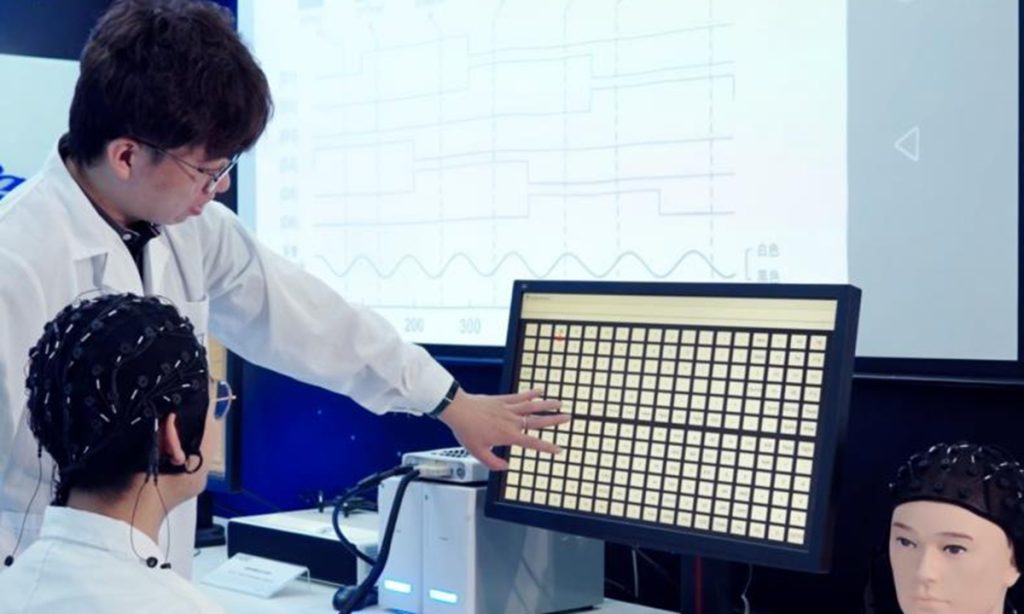Breakthrough: Chinese Scientists Unveil Two-Way Brain-Computer Interface
Chinese scientists have created the world’s first two-way adaptive brain-computer interface (BCI). This groundbreaking achievement promises to revolutionize human-machine interaction. The development, detailed in Nature Electronics, marks a significant leap forward in BCI technology. It offers unprecedented efficiency and control in translating human thoughts into machine commands.
Revolutionary Technology
Researchers from Tianjin University and Tsinghua University developed this innovative system. It uses a memristor-based adaptive neuromorphic decoder. This new technology achieves a 100-fold increase in efficiency compared to traditional BCI devices. It enhances the speed and accuracy of brain-to-machine communication. Moreover, it introduces a novel concept of “brain-computer co-evolution”.
This new interface enables a two-way learning process. The system adapts to changes in the user’s brain signals over time. It also provides feedback to help users refine their thought patterns. This mutual adaptation between biological and machine intelligence is a significant advancement.
Impressive Demonstrations
Volunteers used the BCI to pilot a drone through a 3D obstacle course using only their thoughts. The interface allowed control in four degrees of freedom. Users could move the drone up, down, left, right, forward, backward, and rotate it. All this happened in real-time, surpassing previous BCI capabilities.
Technical Innovations
At the heart of this interface is a 128k-cell memristor chip. It enables a one-step decoding strategy, bypassing traditional computational bottlenecks. This approach combines preprocessing, feature extraction, and pattern recognition into a single operation. As a result, it achieves a 20% increase in accuracy over static decoders.
The system’s energy efficiency is remarkable. It consumes over 1,643 times less energy than comparable CPU-based systems. This reduction in power consumption opens up new possibilities for portable BCI devices.
Potential Applications
The applications of this technology are vast. In medicine, it could lead to advanced prosthetics and improved rehabilitation techniques. It could enhance communication devices for individuals with severe disabilities. The system’s adaptive nature allows for personalized and increasingly effective treatments.
Beyond medicine, this technology could transform various industries. It has potential in gaming, virtual reality, and hands-free control of devices and vehicles. The ability to control complex systems with thoughts could change how we interact with technology daily.
Ethical Considerations
This breakthrough raises important ethical and privacy concerns. The ability to decode brain signals accurately has implications for personal privacy and data security. As the technology develops, establishing robust safeguards and ethical guidelines will be crucial.
Global Impact
This achievement highlights Chinese government’s growing prominence in artificial intelligence and neurotechnology. While some companies focus on invasive brain implants, this non-invasive, adaptive BCI represents a different approach. It could potentially see faster adoption in everyday applications.
Looking to the Future
This two-way adaptive brain-computer interface marks a significant milestone. It pushes the boundaries of BCI technology. We’re moving closer to a future where the line between human thought and technological action blurs. The coming years will likely see further refinements and applications of this groundbreaking technology.



